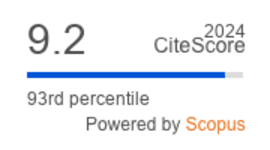Pilot Trial of Probiotics in Major Depressive Disorder: A Randomized, Double-Blind, Placebo-Controlled Approach
DOI:
https://doi.org/10.36877/pmmb.a0000462Abstract
Depression affects approximately 280 million people globally and is projected to become the leading cause of disease burden by 2030. Emerging evidence suggests that probiotics may play a role in managing depression by modulating the gut-brain axis. Therefore, as a pioneering research initiative, we conducted a pilot study in a Malaysian setting, presenting it as a preliminary report on the potential effects of probiotics on depressive symptoms in patients with mild major depressive disorder (MDD) and the associated stool-derived gut microbiome changes. The primary aim was to provide initial insights into the potential effects of probiotics as a stand-alone treatment for mild MDD while also assessing the feasibility of the study. Malaysian adults aged 18–65 with clinically diagnosed mild MDD were randomized in a 3:1 ratio to receive either multi-strain probiotics (Lactobacillus helveticus R0052, Lactobacillus rhamnosus R0011, Bifidobacterium longum R0175, and Saccharomyces cerevisiae boulardii) or a starch-only placebo for six weeks. The primary outcome was overall depressive symptomatology assessed using the Beck Depression Inventory, with additional clinical measures including the Patient Global Impression and Clinical Global Impression scales. Gut microbiome profiling was conducted using 16S rRNA gene sequencing of stool samples. Of 81 initial respondents, 15 met the inclusion criteria and were randomised (probiotic: n=12, placebo: n=3). Key exclusions included current or recent (past month) use of antidepressants or psychiatric treatment and the presence of psychiatric comorbidities. Three probiotic participants dropped out, resulting in a per-protocol analysis of probiotic (n=9) and placebo (n=3) groups for clinical assessments, and probiotic (n=7) and placebo (n=3) for microbiome analysis. Probiotic supplementation led to statistically significant improvements in depressive symptoms, severity, and overall improvement (p<0.05), with no significant changes observed in the placebo group. Effect sizes post-intervention (dpost=0.3) and pre-post (dpre-post=1.282) suggest that probiotics outperformed placebo, with a modest effect size comparable to clinical antidepressant trials. Gut microbiome analysis showed no significant differences in diversity measures but revealed distinct shifts in microbial composition, with increases in beneficial taxa associated with greater clinical improvement. Despite recruitment challenges, the intervention was well-tolerated, and compliance was high. While findings are promising, the small sample size limits generalisability. Larger studies are needed to confirm these results and explore the long-term effects of probiotics in depression management.
Downloads
Additional Files
Published
How to Cite
Issue
Section
License
Copyright (c) 2025 Dinyadarshini Johnson, Kah-Ooi Chua, Jeyarajah Selvadurai, Cindy P.S. Niap, Sivakumar Thurairajasingam, Learn-Han Lee, Vengadesh Letchumanan

This work is licensed under a Creative Commons Attribution-NonCommercial 4.0 International License.
Author(s) shall retain the copyright of their work and grant the Journal/Publisher right for the first publication with the work simultaneously licensed under:
Creative Commons Attribution-NonCommercial 4.0 International (CC BY-NC 4.0). This license allows for the copying, distribution and transmission of the work, provided the correct attribution of the original creator is stated. Adaptation and remixing are also permitted.

This broad license intends to facilitate free access to, as well as the unrestricted reuse of, original works of all types for non-commercial purposes.
The author(s) permits HH Publisher to publish this article that has not been submitted elsewhere.



.png)

.jpg)
